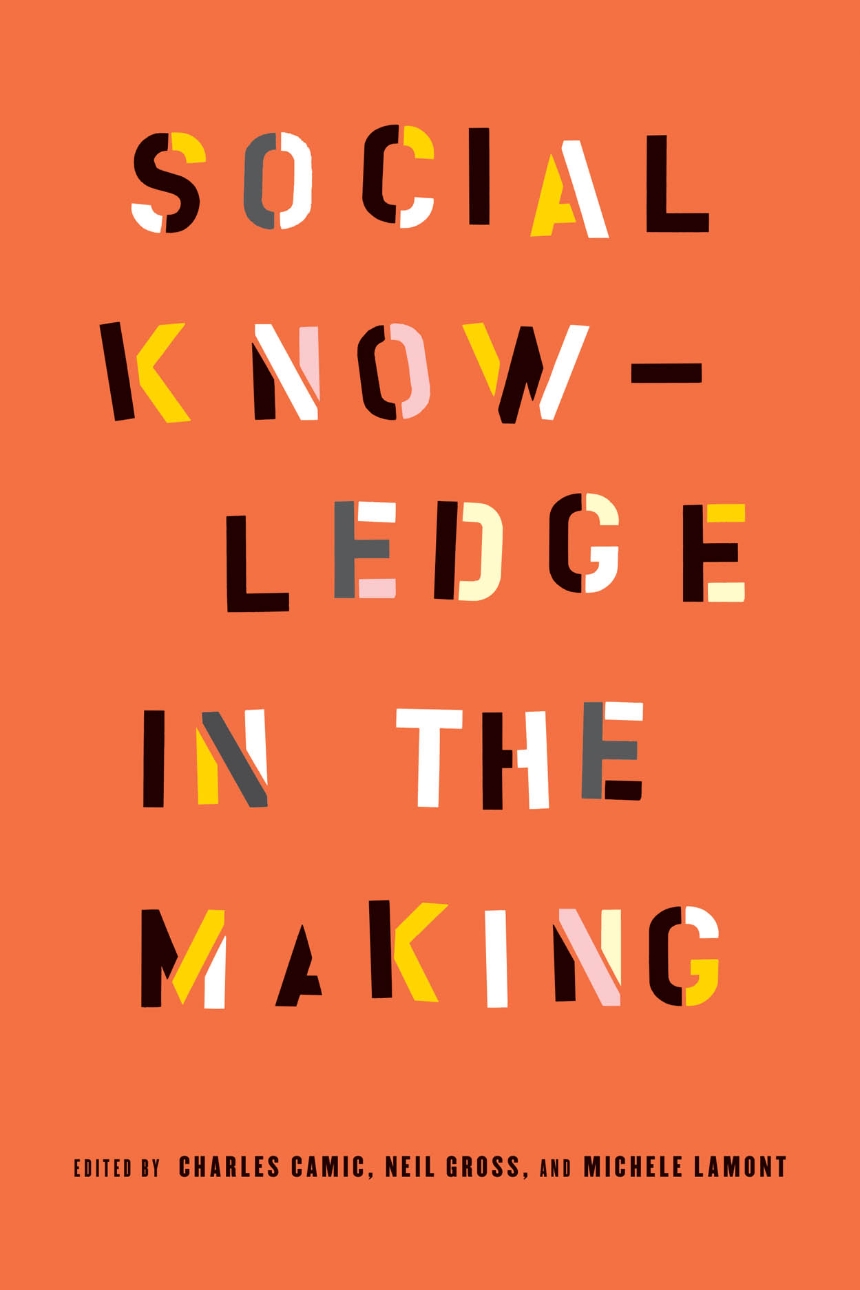Social Knowledge in the Making
Over the past quarter century, researchers have successfully explored the inner workings of the physical and biological sciences using a variety of social and historical lenses. Inspired by these advances, the contributors to Social Knowledge in the Making turn their attention to the social sciences, broadly construed. The result is the first comprehensive effort to study and understand the day-to-day activities involved in the creation of social-scientific and related forms of knowledge about the social world.
The essays collected here tackle a range of previously unexplored questions about the practices involved in the production, assessment, and use of diverse forms of social knowledge. A stellar cast of multidisciplinary scholars addresses topics such as the changing practices of historical research, anthropological data collection, library usage, peer review, and institutional review boards. Turning to the world beyond the academy, other essays focus on global banks, survey research organizations, and national security and economic policy makers. Social Knowledge in the Making is a landmark volume for a new field of inquiry, and the bold new research agenda it proposes will be welcomed in the social science, the humanities, and a broad range of nonacademic settings.
Reviews
Table of Contents
Preface
Introduction: The Study of Social Knowledge Making
Charles Camic, Neil Gross, and Michèle Lamont
Charles Camic, Neil Gross, and Michèle Lamont
Part I
Knowledge Production in the Disciplines
One / Library Research Infrastructure for Humanistic and Social Scientific Scholarship in the Twentieth Century
Andrew Abbott
Two / In Clio’s American Atelier
Anthony T. Grafton
Three / Filing the Total Human: Anthropological Archives from 1928 to 1963
Rebecca Lemov
Four / Academic Conferences and the Making of Philosophical Knowledge
Neil Gross and Crystal Fleming
Five / Practical Foundations of Theorizing in Sociology: The Case of Pierre Bourdieu
Johan Heilbron
Part II
Knowledge Evaluation Sites
Six / Comparing Customary Rules of Fairness: Evaluative Practices in Various Types of Peer Review Panels
Michèle Lamont and Katri Huutoniemi
Seven / Meetings by the Minute(s): How Documents Create Decisions for Institutional Review Boards
Laura Stark
Eight / An Experiment in Interdisciplinarity: Proposals and Promises
Marilyn Strathern
Part III
Social Knowledge beyond the Academy
Nine / Subjects of Persuasion: Survey Research as a Solicitous Science; or, The Public Relations of the Polls
Sarah E. Igo
Ten / The Practices of Objectivity in Regulatory Science
Sheila Jasanoff
Eleven / How Claims to Know the Future Are Used to Understand the Present: Techniques of
Prospection in the Field of National Security
Grégoire Mallard and Andrew Lakoff
Grégoire Mallard and Andrew Lakoff
Twelve / What Do Market Designers Do When They Design Markets? Economists as Consultants to the Redesign of Wholesale Electricity Markets in the United States
Daniel Breslau
Thirteen / Financial Analysis: Epistemic Profile of an Evaluative Science
Karin Knorr Cetina
Contributors
Index
